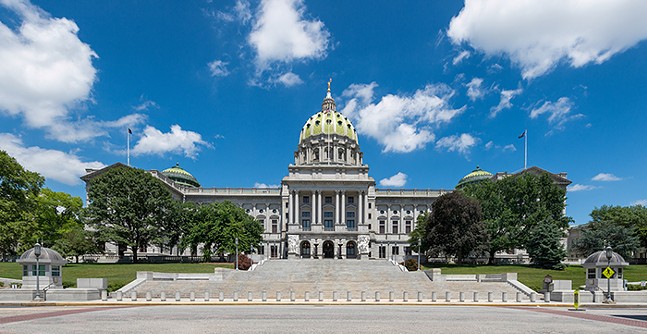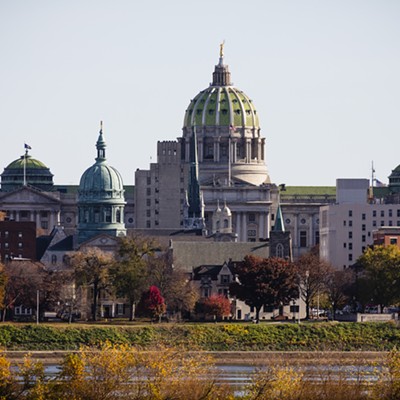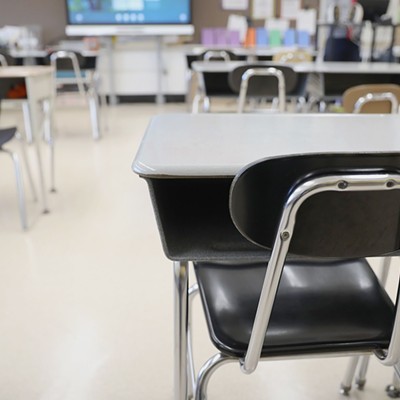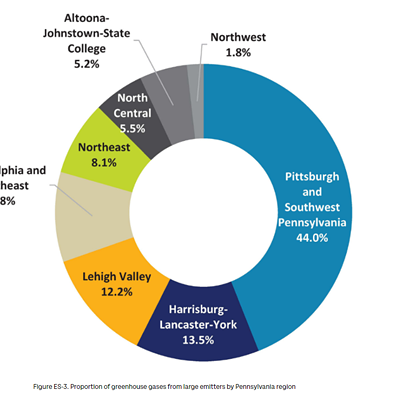Pennsylvania's unspent COVID stimulus cash will likely pad out $35B budget
Today, a $35 billion budget deal, buoyed by federal stimulus money emerged in Harrisburg. If agreed to, it would represent a 2.2% cut from last year.
The budget would complete a drawn-out fiscal process that started in June, and was made more complicated by the economic stagnation caused by the COVID-19 pandemic.
The proposed budget will use a remaining $1 billion of stimulus funds to backfill employment costs for police, corrections officers, and Department of Health employees.
“We’re doing everything we can to make sure we don’t borrow any more money and put Pennsylvania in any deeper debt, and we’re making sure that we don’t raise taxes on families who are right now are hurting,” House Appropriations Committee Chairman Stan Saylor (R-York), told the Capital-Star.
Lawmakers and interest groups previously had eyed those funds to pay for everything from school vouchers to rental aid.
The budget plan also will transfer $531 million out of numerous out-of-budget funds that support programs ranging from recycling and medical marijuana to the state’s judicial computer system.
A House Republican spokesperson said the budget was agreed to with Democratic Gov. Tom Wolf. Saylor said he was “tickled” that Wolf and the General Assembly, despite a fighting over the governor’s pandemic response, had worked together on the budget.
A spokesperson for Wolf, did not say if he agreed to this budget blueprint, only saying that “the administration is working with the General Assembly to complete a balanced budget by the end of November.”
“It is critical for us to finalize the budget by November to avoid furloughs and any stoppage of critical payments to providers and grantees,” they added.
But the budget was opposed in committee by Democrats, who argued that the leftover federal spending should be used to help small businesses and people struggling with the economic fallout of the pandemic.
“We should use the levers of state government to help human beings,” state Rep. Peter Schweyer (D-Lehigh) and a member of the Appropriations Committee, told the Capital-Star
Both Republicans and Democrats remained hopeful that more could be done with additional federal help, whether negotiated by outgoing President Donald Trump or by President-elect Joe Biden.
Negotiations for a second stimulus that focuses on state and local governments have been stalled in Washington, D.C. for months by U.S. Senate Republicans lead by Majority Leader Mitch McConnell (R-Ky).
Given the multi-billion dollar hole in Pennsylvania’s state finances, however, some lawmakers were content to head home without increasing taxes or expanding state debt.
“The money is there,” said Rep. Tommy Sankey (R-Clearfield). “We have a responsibility to govern.”
The budget will flat-fund education, while providing a boost to the Department of Human Services. The Department must receive extra dollars, or the state could lose federal matching funds for such programs as Medicare, known as Medical Assistance in Pennsylvania. The budget also meets Pennsylvania’s debt and pension obligations.
Most of the cuts are concentrated in the administrative agencies, such as the state Department of Revenue, Department of Aging, and Department of Agriculture, as well as cuts for the Attorney General and Auditor General’s offices.
However, harder choices could still lay ahead next June, when the state may still face a budget deficit as well as the need to pay back any short term debt taken out this year to pay the commonwealth’s bills.
Stephen Caruso is a reporter with the Pennsylvania Capital-Star where this story first appeared.
The budget would complete a drawn-out fiscal process that started in June, and was made more complicated by the economic stagnation caused by the COVID-19 pandemic.
The proposed budget will use a remaining $1 billion of stimulus funds to backfill employment costs for police, corrections officers, and Department of Health employees.
“We’re doing everything we can to make sure we don’t borrow any more money and put Pennsylvania in any deeper debt, and we’re making sure that we don’t raise taxes on families who are right now are hurting,” House Appropriations Committee Chairman Stan Saylor (R-York), told the Capital-Star.
Lawmakers and interest groups previously had eyed those funds to pay for everything from school vouchers to rental aid.
The budget plan also will transfer $531 million out of numerous out-of-budget funds that support programs ranging from recycling and medical marijuana to the state’s judicial computer system.
A House Republican spokesperson said the budget was agreed to with Democratic Gov. Tom Wolf. Saylor said he was “tickled” that Wolf and the General Assembly, despite a fighting over the governor’s pandemic response, had worked together on the budget.
A spokesperson for Wolf, did not say if he agreed to this budget blueprint, only saying that “the administration is working with the General Assembly to complete a balanced budget by the end of November.”
“It is critical for us to finalize the budget by November to avoid furloughs and any stoppage of critical payments to providers and grantees,” they added.
But the budget was opposed in committee by Democrats, who argued that the leftover federal spending should be used to help small businesses and people struggling with the economic fallout of the pandemic.
“We should use the levers of state government to help human beings,” state Rep. Peter Schweyer (D-Lehigh) and a member of the Appropriations Committee, told the Capital-Star
Both Republicans and Democrats remained hopeful that more could be done with additional federal help, whether negotiated by outgoing President Donald Trump or by President-elect Joe Biden.
Negotiations for a second stimulus that focuses on state and local governments have been stalled in Washington, D.C. for months by U.S. Senate Republicans lead by Majority Leader Mitch McConnell (R-Ky).
Given the multi-billion dollar hole in Pennsylvania’s state finances, however, some lawmakers were content to head home without increasing taxes or expanding state debt.
“The money is there,” said Rep. Tommy Sankey (R-Clearfield). “We have a responsibility to govern.”
The budget will flat-fund education, while providing a boost to the Department of Human Services. The Department must receive extra dollars, or the state could lose federal matching funds for such programs as Medicare, known as Medical Assistance in Pennsylvania. The budget also meets Pennsylvania’s debt and pension obligations.
Most of the cuts are concentrated in the administrative agencies, such as the state Department of Revenue, Department of Aging, and Department of Agriculture, as well as cuts for the Attorney General and Auditor General’s offices.
However, harder choices could still lay ahead next June, when the state may still face a budget deficit as well as the need to pay back any short term debt taken out this year to pay the commonwealth’s bills.
Stephen Caruso is a reporter with the Pennsylvania Capital-Star where this story first appeared.



















